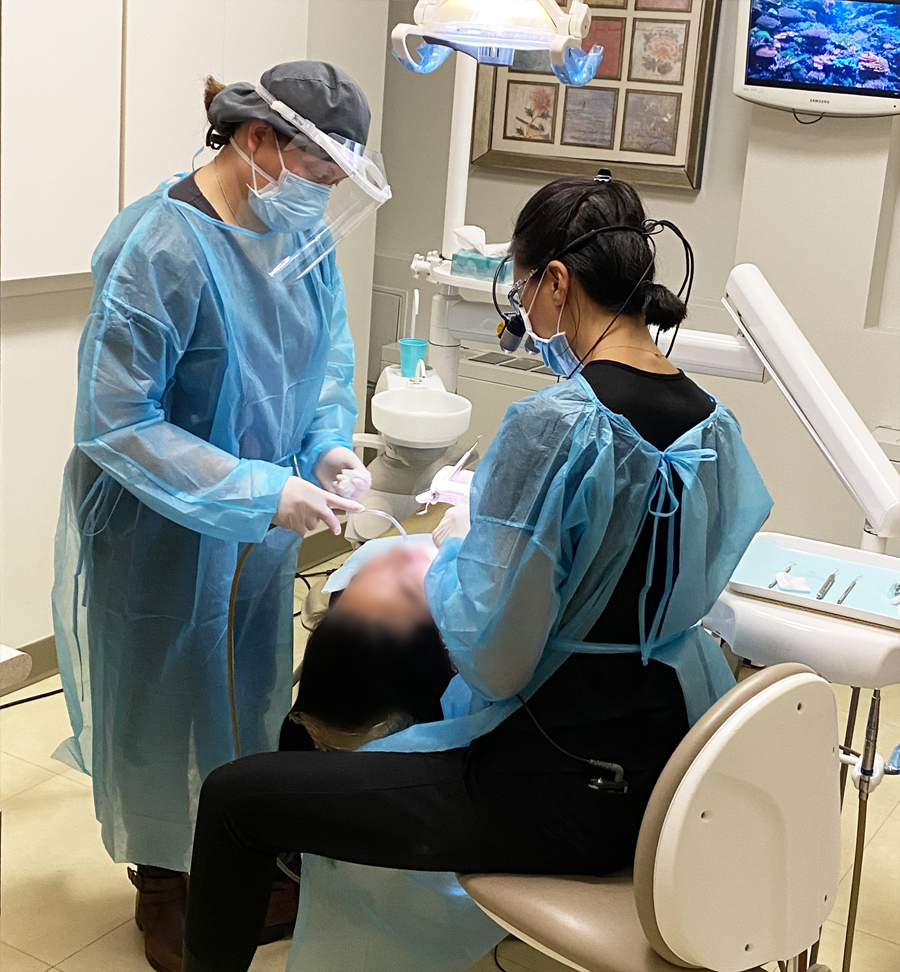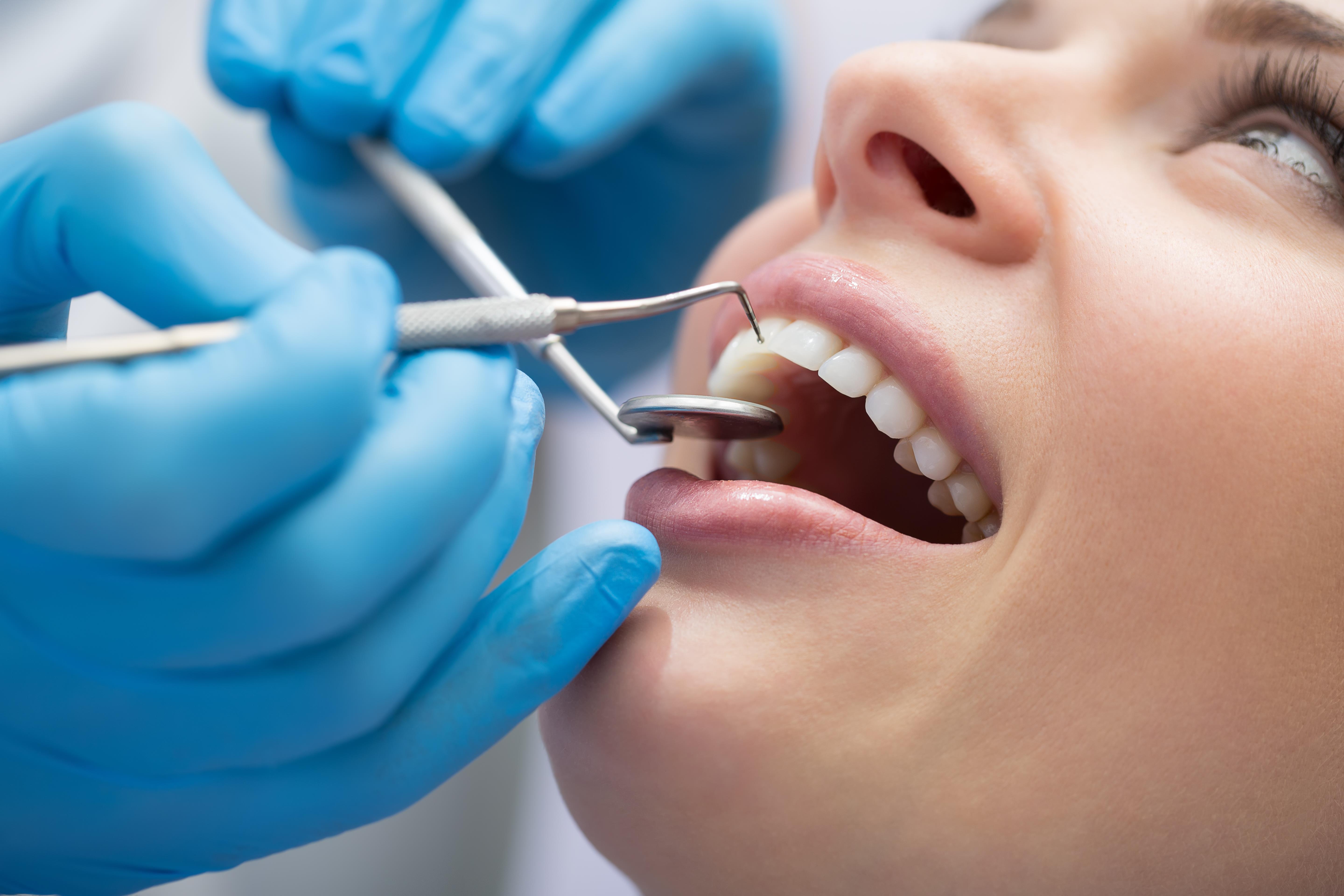Change Your Smile with Porcelain Veneers Washington DC for a Radiant Look
Change Your Smile with Porcelain Veneers Washington DC for a Radiant Look
Blog Article
Usual Concerns Regarding Dental Veneers Answered
Oral veneers have actually ended up being a progressively desired alternative for those seeking to improve their smiles, yet numerous individuals continue to be unsure regarding various aspects of their use. Secret questions frequently arise regarding the application procedure, durability, and potential threats related to these cosmetic enhancements. In addition, the difference between porcelain and composite veneers can dramatically affect one's choice. As we discover these usual queries, it becomes crucial to think about not only the advantages yet additionally the effects of going with dental veneers in pursuit of a much more confident appearance. What variables should one evaluate prior to making such a decision?
What Are Oral Veneers?
Oral veneers are thin, tailor-made coverings crafted from porcelain or composite resin that are created to cover the front surface area of teeth. These dental prosthetics serve both functional and aesthetic functions, giving a solution for various dental flaws, consisting of staining, chips, gaps, and misalignment. By adhering to the teeth, veneers can substantially boost the total appearance of a smile, developing an extra consistent and eye-catching look.
Porcelain veneers are specifically favored for their natural clarity and tarnish resistance, making them a perfect option for people looking for lasting results. In comparison, composite resin veneers are normally more economical and can be applied in a single see, yet they may not offer the exact same durability as porcelain choices.
The choice to choose oral veneers often stems from a desire for aesthetic enhancement, however people ought to also consider variables such as the durability of the material, upkeep demands, and the prospective demand for tooth reduction (Veneers). Eventually, dental veneers stand for a versatile and effective service for accomplishing a radiant smile, satisfying individual aesthetic demands while advertising self-confidence and self-confidence
Exactly How Are Veneers Applied?
The application process for veneers requires careful preparation and accuracy to make sure ideal results. The procedure typically starts with a thorough appointment, where the dental professional assesses the patient's oral wellness, goes over preferred outcomes, and establishes the proper type of veneers, whether porcelain or composite material.
As soon as the treatment plan is established, the dental practitioner prepares the teeth by getting rid of a thin layer of enamel, usually about 0.5 mm to 1 mm, to suit the veneer. This step is essential as it ensures a correct fit and stops the veneers from appearing bulky - Veneers. After preparation, impressions of the teeth are required to produce custom veneers that match the individual's distinct oral structure and visual preferences
While the irreversible veneers are being fabricated in an oral laboratory, short-lived veneers may be positioned to protect the ready teeth. Once the long-term veneers prepare, the dental expert will carefully bond them to the teeth utilizing a solid dental adhesive. Last changes are made to make certain proper positioning and attack, followed by polishing for a natural appearance. The procedure culminates in a follow-up consultation to keep an eye on the veneers' fit and the individual's satisfaction with their new smile.
What Are the Benefits?

In addition, veneers are known for their sturdiness and resistance to discoloring contrasted to natural teeth. Made from high-quality products such as porcelain or composite material, they can keep their look for several years with appropriate care. This durability makes them a useful investment in one's dental appearance.
Along with visual enhancements, veneers can also add to enhanced oral health. By covering harmed or damaged teeth, they can offer additional assistance and security, helping to stop more decay or damage. This safety facet can lower the demand for much more comprehensive oral procedures in the future.

The Length Of Time Do They Last?
With appropriate care and upkeep, dental veneers can last anywhere from 10 to 15 years, making them a long-lasting option for enhancing one's smile. The long life of veneers largely relies on the material made use of, the top quality of the preliminary positioning, and the patient's adherence to dental hygiene practices.
Porcelain veneers are understood for their longevity and resistance to staining, commonly lasting closer to the 15-year mark when cared for suitably. Composite veneers, while extra budget friendly, may need substitute earlier, frequently within 5 to one decade as a result of their vulnerability to wear and discoloration.

Additionally, wearing a mouthguard throughout sports or nighttime can provide added defense. Ultimately, while veneers use a considerable visual enhancement, their longevity is dramatically affected by the dedication to correct oral treatment and routine assessments with an oral professional.
Are There Any Kind Of Threats?
Thinking about the transformative impacts of dental veneers, it is very important to acknowledge the prospective risks related to their application. While veneers can improve the appearance of teeth, the procedure includes the removal of a thin layer of enamel, which can increase tooth sensitivity and vulnerability to degeneration.
One significant risk is the possibility of inappropriate placement or fitting, bring about discomfort, bite imbalance, and even damages to the underlying tooth structure. Additionally, if the veneers are not kept effectively, they can become tarnished or chipped gradually, demanding replacement.
Patients may also experience allergic responses to the materials made use of in the veneers, particularly if they have sensitivities to certain dental his response compounds. While veneers are sturdy, they are not unbreakable; too much pressure from squeezing or grinding can lead to fractures.
It is crucial for people to seek advice from a qualified oral specialist to examine their private risks and to follow aftercare guidelines faithfully. By comprehending these dangers, clients can make informed decisions regarding their oral veneer treatment and make sure the longevity and success of their improvements.
Conclusion
In summary, dental veneers represent a valuable cosmetic option for enhancing smiles, with factors to consider concerning their application, advantages, longevity, and connected risks. Inevitably, educated decision-making relating to dental veneers can lead to sufficient visual end results and improved oral wellness.
Oral veneers are thin, custom-made shells crafted from porcelain or composite resin that are created to cover the front surface area of teeth. After prep work, perceptions of the teeth are taken to produce customized veneers that match the client's distinct visit this web-site oral structure and visual choices.
While the permanent veneers are being produced in an oral laboratory, temporary veneers might be put to safeguard the ready teeth. Once the irreversible veneers are prepared, the dentist will carefully bond them to the teeth using a solid oral adhesive. Inevitably, notified decision-making relating to oral veneers can lead to adequate visual results and boosted oral wellness.
Report this page